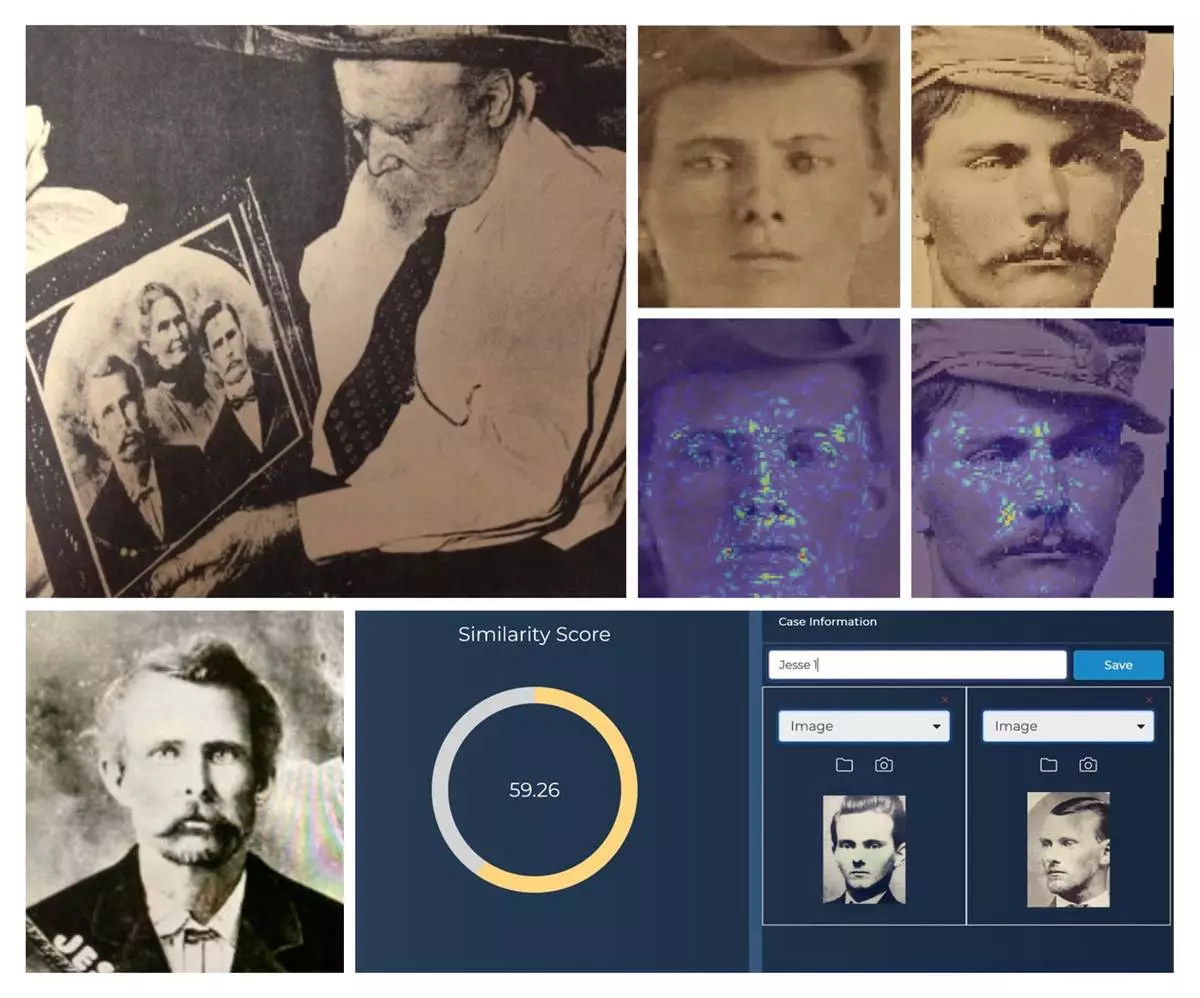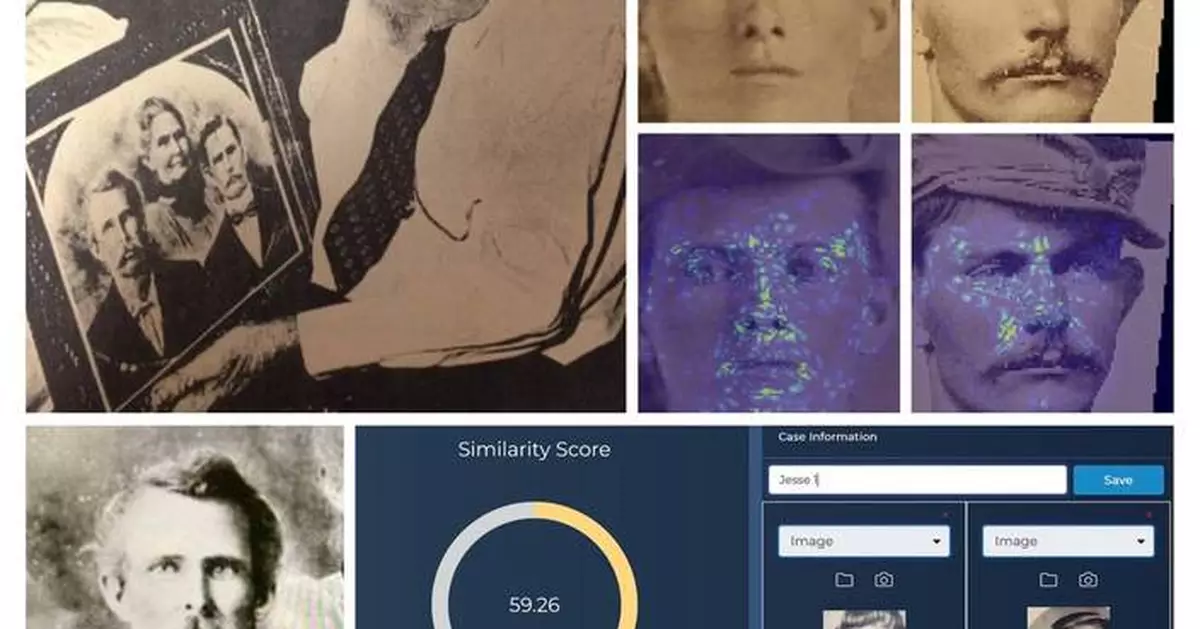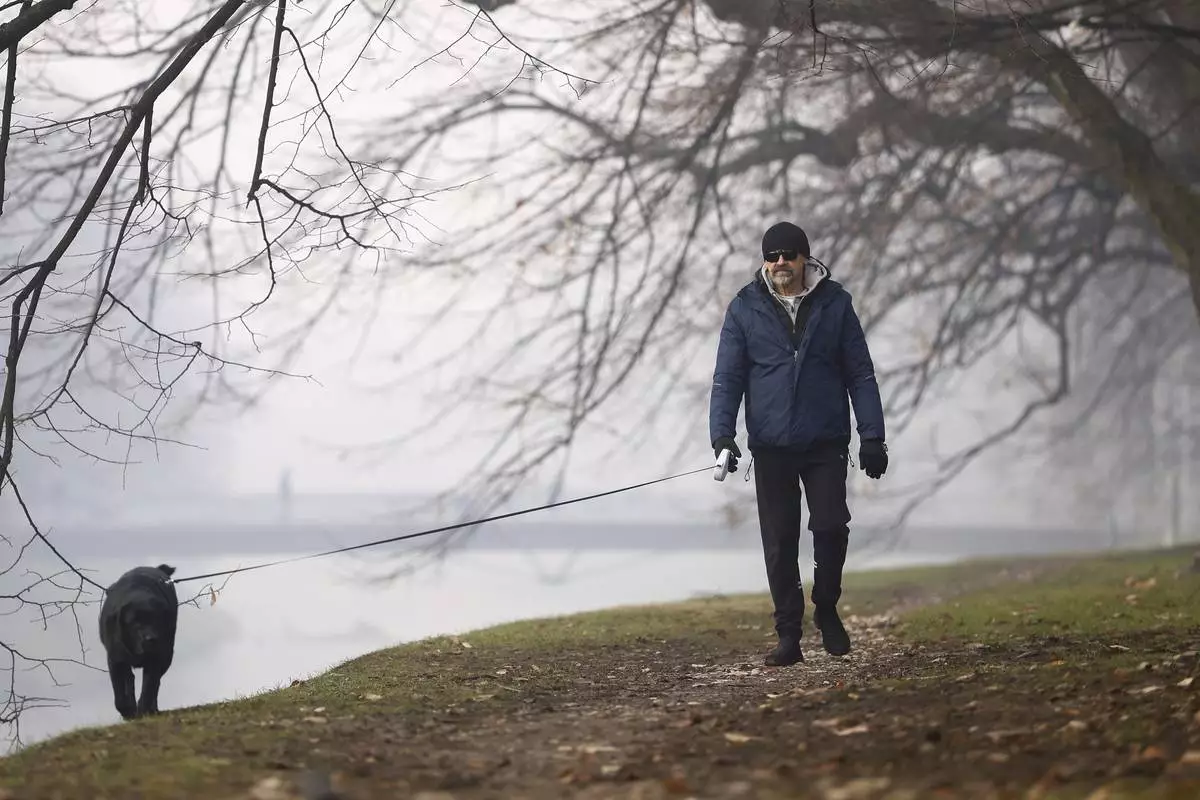WASHINGTON--(BUSINESS WIRE)--Dec 19, 2024--
Jesse James, America’s most famous outlaw, escaped justice for decades largely because few people knew what he looked like. Born in Missouri in 1847, James became a notorious figure following the Civil War, leading a gang responsible for numerous bank and train robberies across the American Midwest. The sharp-jawed individual captured in the iconic WANTED poster from the early 1880s became the definitive image of the elusive outlaw. Today, advanced AI-powered facial recognition technology has confirmed that three earlier photos of a suspected youthful James are indeed the same person.
This press release features multimedia. View the full release here: https://www.businesswire.com/news/home/20241219016166/en/
Corsight AI, specializing in facial intelligence technology and working with notable organizations including Essex Police and the Mall of America, examined a collection of historic photos potentially depicting the notorious train and bank robber. Three photos — one showing a steely-eyed young Confederate guerrilla toting a pistol and wearing a brimmed hat and bow tie; another of a college-aged man wearing a jacket and bow tie; and a third of a poised teenager in an overcoat holding a hat — generated extremely high confidence levels for a positive match with the famous WANTED poster portrait.
Confidence levels for the candidate photos ranged from 60 to 85. Facial matching of historic figures typically does not exceed confidence levels of 85 due to the technical limitations of 19th-century photography and the aging of the original prints, including "carte de visite," ambrotype, and tintype-style head profiles. Corsight AI’s algorithms generated very high probability match scores for the Jesse James headshots in question. However, other pictures previously considered authentic portraits of James were proven not to be his, adding an interesting twist to the story of his later years. The facial comparisons are part of an ongoing research project — and a future documentary TV series — investigating James’ rumored role as the leader of a Confederate underground movement, the Knights of the Golden Circle, which aimed to spark a second Civil War using hidden caches of gold, silver, and arms.
“We collaborated with Corsight AI to verify the authenticity of several photographs of Jesse James and compare them to each other,” said Warren Getler, a Washington-based journalist and co-author of Rebel Gold, a non-fiction book about James and the Knights of the Golden Circle. “Their advanced facial-recognition technology, commonly used in forensic investigations by law enforcement, allowed us to match individuals appearing in photos with reference images. The clear results of the facial recognition analysis we obtained — confirming the authenticity of some photos previously considered questionable — have provided new and surprising insights into the story of Jesse James,” Getler added.
Rob Watts, President and Chief Strategy Officer of Corsight AI, remarked: “Our technology helps law enforcement and intelligence agencies worldwide identify suspects or missing persons in real time and conduct forensic investigations of photos or videos from crime scenes. As far as I know, this is the first time our recognition technology has been used to identify criminals from the 19th century.”
Prof. Yaniskiy Ravid, Visiting Professor at Fordham Law School and Research Fellow at Yale Law School’s ISP, Head of the Graduate Law and Technology School, explained: “AI models, including facial recognition algorithms, often operate as a 'black box,' where even the scientists who develop them may not fully understand how or why the AI reached a particular conclusion. Explainability is essential for AI models to provide a human-understandable explanation of how an algorithm arrives at a decision. In the context of facial recognition, this involves clarifying how the algorithm determines whether the faces in two images are identical or different.”
Facial recognition, like other AI systems, now needs to be explainable, enabling humans to understand how the algorithm made a certain decision. This is a major step toward improving trust among users, policymakers, and the public while addressing accountability, fairness and transparency concerns. Developing FRT that embeds explainability standards — by providing detailed insights into its operation and decision-making processes — may help alleviate strict legal frameworks surrounding the use of facial recognition technologies.
Prof. Yaniskiy Ravid added: “Explainability is also emphasized in key regulatory frameworks, including NIST guidelines and the upcoming ISO 42001 standard, set to take effect in 2025. These standard mandates that any organization using AI must be able to explain how its algorithms reach their conclusions, ensuring greater transparency and accountability.”
Matan Noga, VP of Research and Development at Corsight AI, explained: “Using advanced recognition tools, we compared a reference photo, definitively known to be Jesse James, with other images considered original. With Corsight AI's unique and patented explainability module, we can explain why the system identified a high match between certain images and a clear mismatch between others. Explainability is also crucial when using AI-based photo or video analysis as evidence in court.”
The conclusive results about the authenticity of some of the photos, previously thought to be originals of Jesse James, shed new light on the story. The documentary is currently in early production, and the surprising findings regarding the identity and history of Jesse James are expected to be revealed when the film is released in 2025.


AI Explainability Uncovers Surprising Truth About Jesse James in New Documentary (Photo: Business Wire)



















